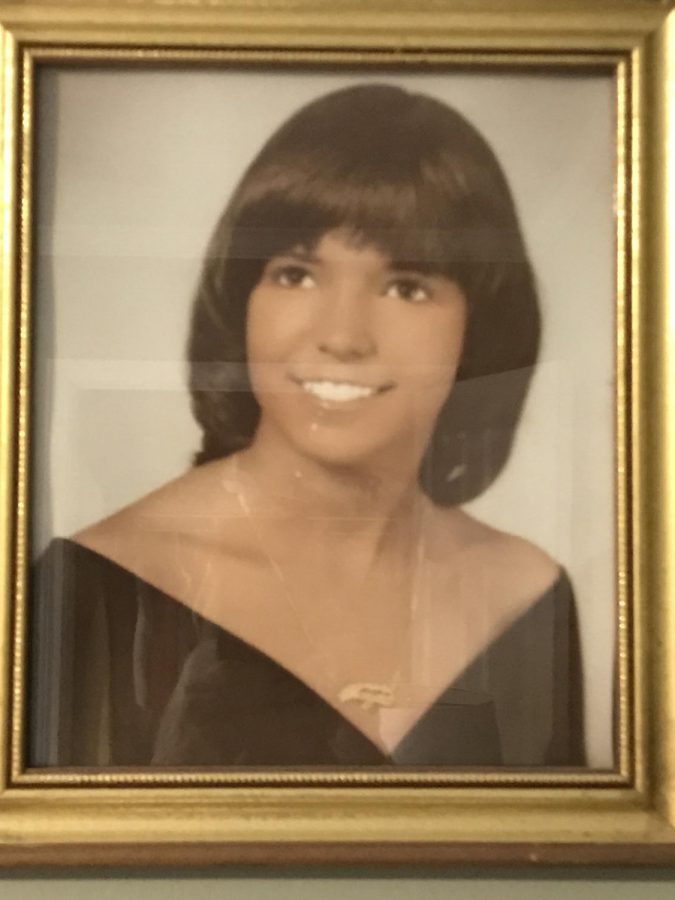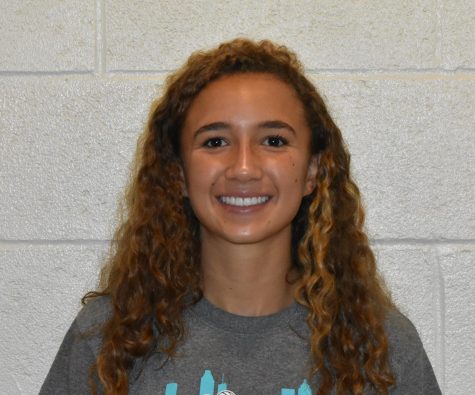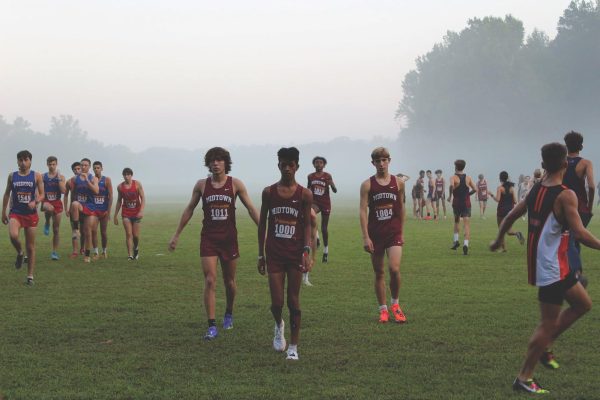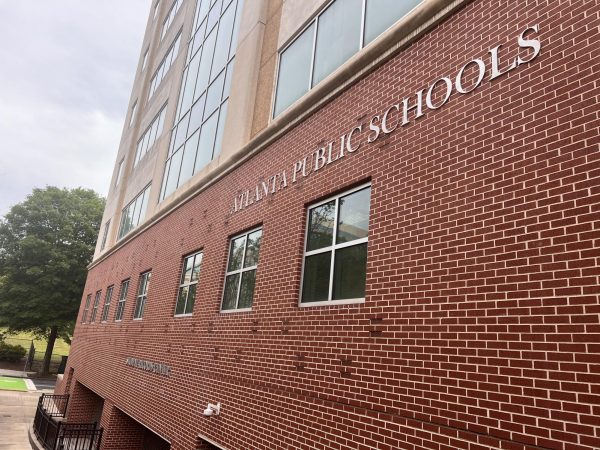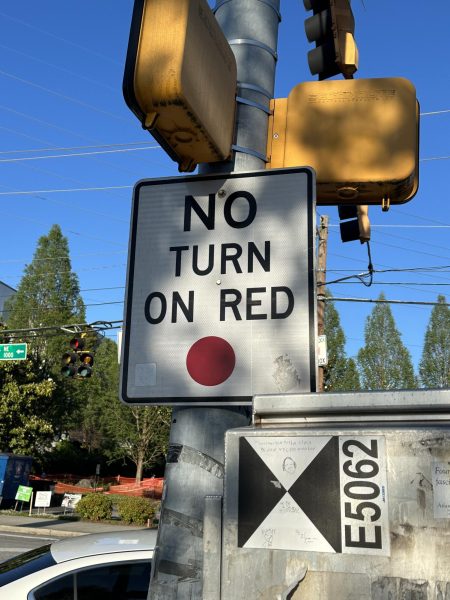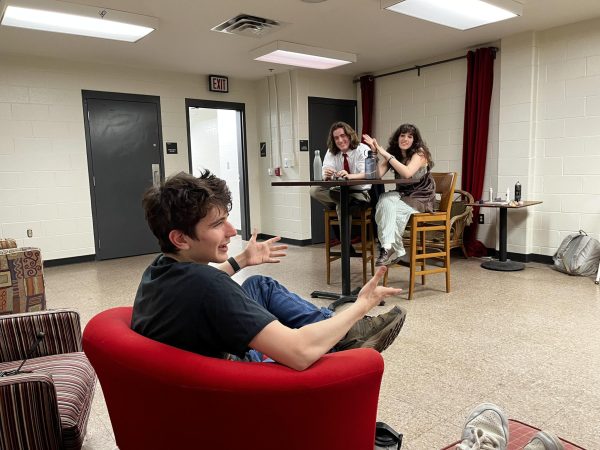Alumna remembers the era of hippies and flower children
Nostalgia: Alumna Mayda Baldwin (Class of 1974) witnessed many significant cultural changes during her time at Grady.
March 26, 2019
The 1960s and 1970s brought social and cultural changes like the Civil Rights and hippie movements; Grady was no different.
Alumnus Mayda Baldwin (Class of 1974) recalls experiencing these changes, but her story is different from the average American student during this time. At 6 years old, Baldwin fled Cuba during the communist era in 1960 and moved to Virginia-Highland with her parents, hoping for a better life. She attended Inman Elementary School, which is now Inman Middle School, and eventually, Grady.
“I remember being very scared and very sad because I was leaving friends and family behind,” Baldwin said. “Part of the scared feeling was that I didn’t speak the language.”
At the time Inman did not offer ESOL (English as a Second Language) programs and all of her teachers spoke only English, so Baldwin was held back a grade to help her keep up.
“My parents have talked about how I came home crying,” Baldwin said. “I was used to being very smart, and I wanted to do just was well as everyone, but I didn’t know what they were saying.”
Back home in Cuba, Baldwin only remembers one thing: not loving it. When she came to the United States, she pushed away the memories of Cuba so much that only one memory stuck with her.
“I was placed in a dark closet,” Baldwin said. “My grandfather came into my house, put a coat over me, and ran to my grandmother’s house. When I walked in the door, my grandmother’s face was cut up and bloody.”
As a child, she believed the event was a dream, but with age, her parents explained to her that it was an actual event that occurred.
“I found out it was not in a closet, but under my bed, and my parents had put me there because there was an aerial attack,” Baldwin said. “My grandmother had been standing by the window looking for us, and the window shattered and had cut her face.”
After making peace with her past, Baldwin moved on to her high school years at Grady.
“[My parents] wanted me to go private school, but I was determined to go to public school,” Baldwin said. “However, in the end, my father felt that I had the best education.”
However, her good education did not stop her brother and sister from outsmarting her in the home.
“We were always smart enough to say something or do something right when Mayda was standing behind us, so when my mom would throw something, it would always end up hitting Mayda,” said Nestor Febles, Baldwin’s younger brother.
During her years at Grady, she was in the middle of the so called “Flower-child, Hippie Movement.” Febles describes her during that time as “a rebel without a cause,” so in many ways, she fit right in.
“I was completely intrigued by it, dying to try to see what it’s like to be a hippie,” Baldwin said. “So, I planned with a friend of mine to skip school and pretend we were hippies for a day.”
She heard her parents talk about how they were going to a funeral and thought that would be the perfect day to experience the revolution.
“We brought our rattiest jeans to school, went in the restroom, and changed into hippies,” Baldwin said. “We walked up 10th Street onto Peachtree, where people were always playing music and laying around. All of the sudden, someone grabbed me. It turned out it was my mother, who was furious.”
Baldwin describes this time as a period when “there was a lot of confusion in our country” and says that it was “fascinating and intriguing.”
“I would say [Grady] mirrored what was happening in society,” Baldwin said. “So, there was a lot of tension and a lot of conflict and anger.”
She was at Grady during the Vietnam War, so every now and then, she would hear about a former student being lost to the war. Also, the federal desegregation of school orders came out in 1963 before she enrolled at Grady in 1969, but Baldwin believes desegregation still affected her school life.
“The teachers were allocated out based on a lottery, or [were] randomly picked,” Baldwin said. “So, some of the schools that were usually very black or white — they tried to blend them by bringing in new teachers, which brought a whole lot of anger from children and young people who had never gone to school together.”
These new changes in the school exposed students to what was really going on in the outside community.
“In my experience at Grady, I learned we were no longer two different people; we were friends and schoolmates who had pajama parties, went to concerts and were there for each other,” Baldwin said.
Baldwin went to school with people like Yolanda King, daughter of civil rights activists Martin Luther King, Jr. and Coretta Scott King, and actor Eric Roberts, the brother of actress Julia Roberts.
“Grady had high-achieving students and amazing teachers,” Baldwin said. “[Yolanda King] was just a grade or two older than me and worked in civil service, and [Eric Roberts] was very successful in the arts.”
Baldwin and her mother also worked at the former Sears, where Ponce City Market is now located. Her mom was an accountant and Baldwin held a part-time job as part of the team that took catalogue orders.
“Ponce City Market brings back lots and lots of memories,” Baldwin said. “They have done an amazing job of keeping the history alive, including the old clocks, down to the very hard concrete steps in the front.”
From Cuba to Grady to Ponce City Market, Baldwin has encountered exciting and terrifying events, but powered through, and believes it was all a gift.
“Grady High School has been amazing,” Baldwin said. “I believe I got the best and most well-rounded education in what has continued to be a progressive community.”

